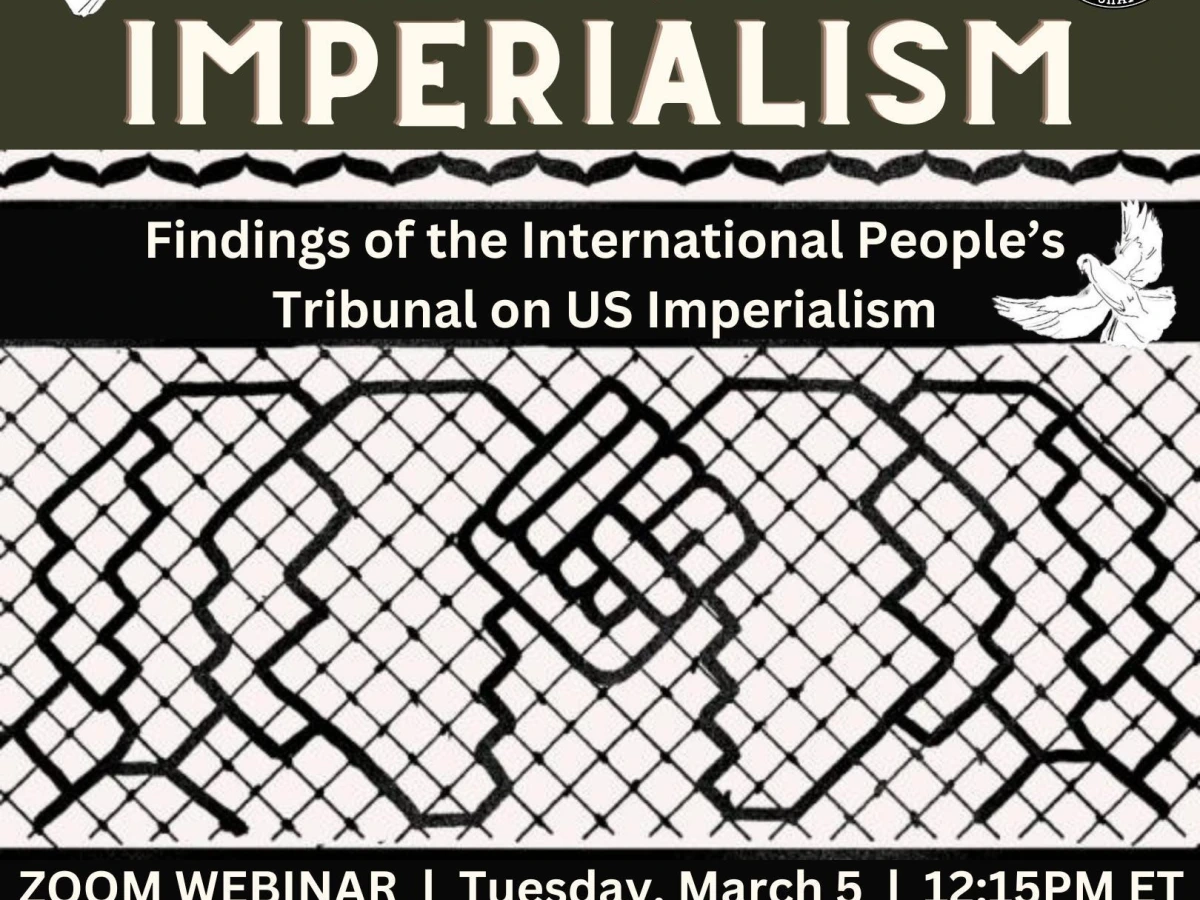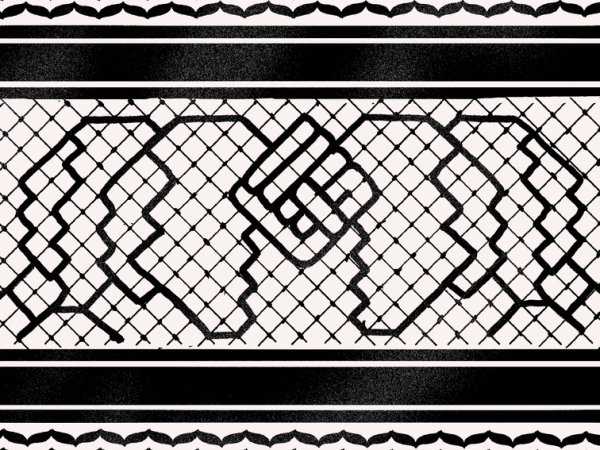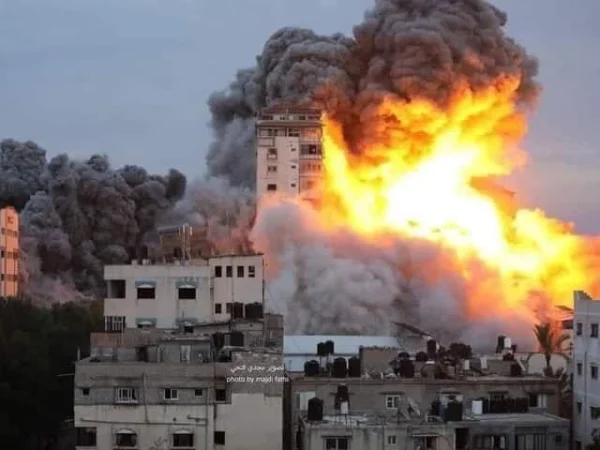Since the end of the Cold War, the world has witnessed an unprecedented proliferation of sanctions regimes, particularly by the United Nations Security Council, the European Union, and the United States. This is due in part to the collapse of the Soviet Union, which ended the deadlock between superpowers at the Security Council. Over the past few decades, sanctions were slowly reconfigured from war time weapons into peacetime policy instruments. In order for this effort to materialize, policymakers, legal scholars, and government officials campaigned to legitimate sanctions as a lawful weapon to punish nations who refuse to submit to the United States and Europe.
The International People’s Tribunal on U.S. Imperialism: Sanctions, Blockades, and Economic Coercive Measures approaches economic coercive measures as inherently violent, designed to maintain economic inequality, continue the theft of wealth from the Global South, and preserve racial hierarchy in the international system. Such measures are structurally incapable of reform, and cannot incorporate humanitarian concerns. The Tribunal is a collective effort to build systems of accountability—rooted in global cross-movement solidarity—both within and outside of the law, to challenge the violence of imperialism through sanctions. We interrogate sanctions not from the perspective of those who enforce them, but from the perspective of those most impacted by them, namely the peoples of Asia, Africa, and South America.
WHY HOLD A PEOPLE’S TRIBUNAL?
People’s Tribunals capture the ethos of self-determination and internationalism that was expressed through twentieth century anti-colonial struggles and was institutionalized in the 1966 Tricontinental Conference in Cuba. They bring together movement lawyers, scholars, and organizers from around the world and are designed by and accountable to the social movements and communities in which they are rooted. Operating outside of the logics and institutions of capitalist and imperialist law, People’s Tribunals make decisions that may not be binding and do not have the force of law, but their achievements in a political and discursive register inspire and provide the tools necessary for present and future organizing. People’s Tribunals allow the oppressed to judge the powerful, defining the content as well as the scope of the procedures, which reverses the norm of the powerful creating and implementing the law.
There is a long tradition of radical organizers and lawyers using the law to put capitalism and imperialism on trial. Organized by the Civil Rights Congress, and supported by the Communist Party as well as a host of Black leftist luminaries, including W. E. B. Du Bois, Claudia Jones, and Paul Robeson, We Charge Genocide: The Historic Petition to the United Nations for Relief of a Crime of the United States against the Negro People, indicted the political-economic system of capitalism and white supremacy for inflicting numerous forms of structural and physical violence on Black people in the U.S. as well as drawing parallels to U.S. imperialist violence abroad. The Russell Tribunal was set up in 1966 to judge U.S. military intervention and war crimes in Vietnam. The same format reemerged in later Russell Tribunals dealing with the U.S.-backed Brazilian and Argentinian military dictatorships (1964 and 1976, respectively), the U.S.-backed coup in Chile (1973), and the U.S.-European interventions against Iraq (1990, 2003). The 2016 International Tribunal for Democracy in Brazil critically examined the impeachment of President Dilma Rousseff and the role of the U.S. government. Organized in Brussels by both Philippine and international groups, the 2018 International People’s Tribunal on the Philippines exposed and condemned the multiple forms of state violence visited on the people of the Philippines since Rodrigo Duterte became president in 2016. And finally, the U.S. government was put directly on trial by a pair of innovative People’s Tribunals, including the 2007 International Tribunal on Katrina and Rita and the 2018 International Tribunal on U.S. Colonial Crimes Against Puerto Rico.
Latest Updates
March 5, Online: Abolish Imperialism – Finding of the People’s Tribunal on US Imperialism
As part of the NLG Week of Abolition, join the Harvard Law School Chapter of the National Lawyers Guild for a conversation with facilitators and jurists of the International People’s Tribunal on U.S. Imperialism. This event will take place Tuesday, March 5, from 12:15-1:20 PM Eastern (GMT-5) on Zoom…
The Gaza Resolution
The International People’s Tribunal on U.S. Imperialism joined organizations around the world in endorsing the Gaza Resolution, initiated by the Progressive International: We, the undersigned: (1) Grieve the lives claimed in the renewed cycle of violence, brutality, and destruction unleashed by the ongoing occupation of Palestine; (2) Consider that…
The International People’s Tribunal on U.S. Imperialism Stands in Solidarity with Palestinian National Liberation and Resistance
On October 7th, the world woke up to powerful and historic images of Palestinian freedom fighters breaking through the open air prison that is Gaza via land, sea and air. The unified Palestinian Resistance – consisting of all the different Palestinian political and resistance factions – is responding to…
DONATE
All donations will go directly to the efforts of the investigation.
JOIN OUR MAILING LIST
Sign up to receive updates about the Tribunal.
ENDORSE
Would your organization like to endorse the Tribunal?
No part of the materials, documents, and testimonies produced during the International People’s Tribunal on US Imperialism: Sanctions, Embargoes, and Economic Coercive Measures may be reproduced, distributed, transmitted, displayed, or otherwise used, in whole or in part, without the prior written permission of the International People’s Tribunal on US Imperialism.
Copyright © 2023
International People’s Tribunal on US Imperialism: Sanctions, Embargoes, and Economic Coercive Measures. All rights reserved







![🗓️ September 15th, 10:30am EST [GMT -4]](https://scontent-iad3-1.cdninstagram.com/v/t51.29350-15/375437061_2437583619734594_290757180676220664_n.jpg?_nc_cat=110&ccb=1-7&_nc_sid=18de74&_nc_ohc=vZ0DxiRCATwAb7l9eUD&_nc_ht=scontent-iad3-1.cdninstagram.com&edm=ANo9K5cEAAAA&oh=00_AfBL_9ZLZlfS7XHd6UN9xyOj5xvMDM5VKzzqfNSRrgpeEA&oe=66333777)



